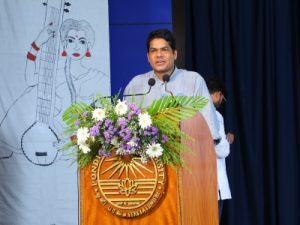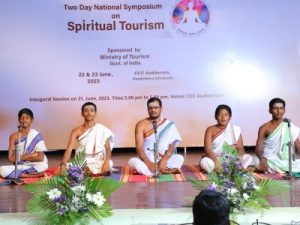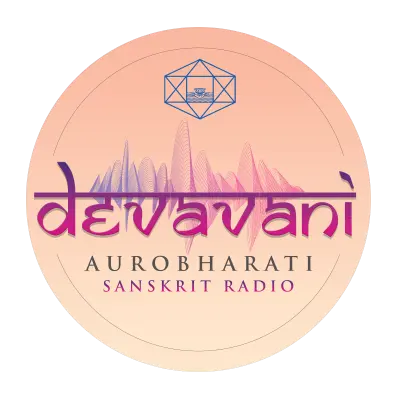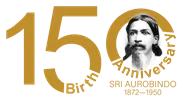workshop and demonstration program on ‘Vedic Chanting: Intangible Culture, Tradition and Continuity’
Location: Pondicherry University
Institute: AuroBharati
 “I believe that Veda to be the foundation of the Sanatan Dharma; I believe it to be the concealed divinity within Hinduism,—but a veil has to be drawn aside, a curtain has to be lifted. I believe it to be knowable and discoverable. I believe the future of India and the world to depend on its discovery and on its application, not to the renunciation of life, but to life in the world and among men.” — Sri Aurobindo (Essays Divine and Human, Vol. 12 [CWSA], P. 62).
“I believe that Veda to be the foundation of the Sanatan Dharma; I believe it to be the concealed divinity within Hinduism,—but a veil has to be drawn aside, a curtain has to be lifted. I believe it to be knowable and discoverable. I believe the future of India and the world to depend on its discovery and on its application, not to the renunciation of life, but to life in the world and among men.” — Sri Aurobindo (Essays Divine and Human, Vol. 12 [CWSA], P. 62).
As part of the Two-days National Symposium on ‘Spiritual Tourism’ organized by Department of Tourism, Pondicherry University in collaboration with Ministry of Tourism, Government of India, workshop and demonstration program on ‘Vedic Chanting: Intangible Culture, Tradition and Continuity’ was organized. The session was facilitated by Dr. Kishor Kumar Tripathy, Member Secretary, AuroBharati, Sri Aurobindo Society, Puducherry and the Acharyas and students of Vedasharama Gurukulam, Karuvadikuppam, Puducherry. Speaking on the occasion, Kishor Kumar Tripathy said that Vedic  Chanting as Intangible Cultural Heritage and one of the world’s oldest surviving cultural traditions. Highlighting the glorious history of the Vedas, he informed about the vision of Maharshi Aurobindo on the Vedas, including The Secret of the Veda, Hymns to the Mystic Fire and works on the Upanishads. Second part of the session was based on chanting of the sacred Mantras by the Acharya Shri Guruprasad Bhatt and students of Vedasharama Gurukulam, Puducherry. They recited selected suktas of the Vedas including Shraddhasukta, Medhasukta, Sarasvati Vandana, Shantimantra and Ghanapatha. Aspects of Vedic chanting including, traditional, contemporary and living , oral tradition, inclusive nature, representative, community-based approach and international recognition were discussed.
Chanting as Intangible Cultural Heritage and one of the world’s oldest surviving cultural traditions. Highlighting the glorious history of the Vedas, he informed about the vision of Maharshi Aurobindo on the Vedas, including The Secret of the Veda, Hymns to the Mystic Fire and works on the Upanishads. Second part of the session was based on chanting of the sacred Mantras by the Acharya Shri Guruprasad Bhatt and students of Vedasharama Gurukulam, Puducherry. They recited selected suktas of the Vedas including Shraddhasukta, Medhasukta, Sarasvati Vandana, Shantimantra and Ghanapatha. Aspects of Vedic chanting including, traditional, contemporary and living , oral tradition, inclusive nature, representative, community-based approach and international recognition were discussed.



